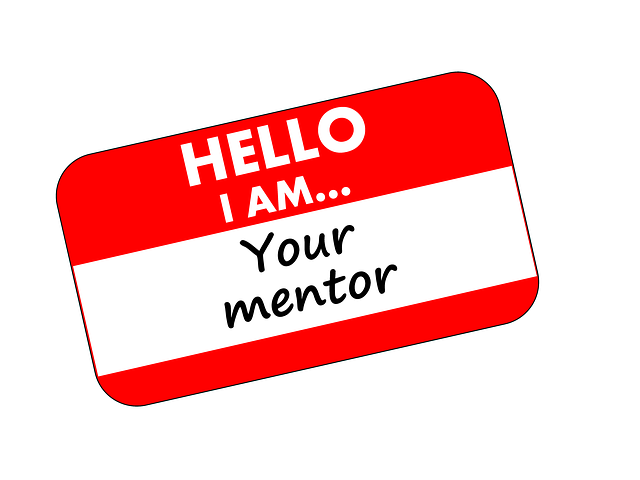Those that took the time to read my State of the Universe 2021, know that I have decided to dedicate 2021 to the topic of mentorship. During a recent conversation with a friend and coaching peer, the topic of automatic mentorship came up. What I mean by automatic mentorship is really best posed in a question. Are there certain positions that make you an automatic mentor? Obviously, since it was a discussion between two coaches, the position of head coach came to mind. Is a head coach automatically a mentor to their assistant coaches? The answer would seem to be an easy “yes”, but as we discussed it further, it became cloudy. There are a lot of times, especially in youth sports, where an assistant coach may actually have more experience than the head coach. There are a lot of reasons this may happen such as scheduling, a kid on the team, or just the lack of desire to be a head coach. I am certainly not saying that a seasoned assistant coach can’t learn things from a younger/greener head coach. I am just bringing up the point that it may not always be an “amount of experience” situation.
I think one of the issues facing true mentorship is the belief that someone in a top position (head coach, lead trainer, c-suite) is automatically going to be a good or effective mentor. For me, the keys to a great mentor are:
- Willing to put in the time to be a real mentor and not just one by title
- Open to the idea that the mentee may not always agree with your ideas and teaching
- Willing to learn as well
All those keys may seem pretty simple and basic, but oftentimes these are the areas where the mentor/mentee relationship fails. Sadly, I am one of those failure stories. Recently, as a mentor, I have failed. I committed to being a mentor, then when COVID-19 hit, I let the craziness take over. While my mentee was very understanding and forgiving, I failed her. It may have also been the time she needed me most. We are back on track and I have recommitted to our relationship, but it still bothers me. After all the research and “talking” I have done on mentorship, I failed at step #1. That may be the catalyst for my drive to make 2021 about mentorship. Let’s take a moment and look at my three keys.
Key #1 – Time Commitment
This is number one on my list for a reason. It does not matter what your resumé is or how many years of experience you may have. If you do not have the time to work with your mentee, the whole relationship is in jeopardy. In fact, it may go from a lens of learning to a lens of resentment. How much time varies by field and level, but I would suggest setting aside 5-10 hours a week to work with your mentee. Some of this may be face-to-face (or remotely in today’s world), but a lot of it is just listening and helping the mentee talk it out. Personally, with my mentees, we have a standing 45-minute call weekly, then throughout the week, we hash out issues and items that the mentee finds important. A lot of this is done via email and text. It may also be as simple as sharing a Linked-in post and chatting about it quickly. It does not have to feel like a workbook approach, although in some industries and cases that make be very beneficial.
Key #2 – Being Open
This is a big issue I hear about when I talk with other mentors. Many of them, while great people and good at what they do, they fall short as a mentor because they treat it like a boss/employee relationship. Chances are your mentee already has a boss that is directing their work life. They may just be looking for methods to cope or structure to better function in their role. Note that this is different than learning to do their role. The minute you start telling them how to do their job, your relationship begins to move from mentorship to apprenticeship. That is why I always encourage mentors to seek out mentees that may not be in a directly related field or area. Going back to the coaching well, maybe you can mentor a coach in a different sport, gender, or age level. You have to come to the realization that your mentee needs to do things in their own manner. You want to offer your sage advice and share your personal experiences, but you have to let them learn a lesson or two on their own. That can be frustrating at times as a mentor. You have that sense of “look, I have been here and made this mistake”. Learning from our failures is a key component of growth. If we take them all away, are we creating better leaders or just carbon-copies? More importantly, in my opinion, is that we may miss out on other solutions that did not come to us in the past. You have to be able to shake off the disagreements and let go of the ego.
Key #3 – Willing to Learn
This goes hand and hand with Key #2. As a mentor, you can’t be so close-minded that you miss the chance to see a new method or solution. Your mentee can be a great source of learning and education for yourself as well. Don’t be afraid to ask your mentee to guide you through some of their actions and solutions as well. The mentor/mentee relationship is not a one-way street. Just like Key #2, letting go of your ego may be the biggest obstacle in your way to a great relationship. It is very easy to stick to your methods and solutions, but don’t be afraid to learn a little, even from someone who doesn’t have the same level of expertise or experience.
As we continue this series all year on mentorship, we will look at concepts such a dual mentorship, forced mentorship, and methods for selecting a mentee. I firmly believe that mentorship is one of the greatest, yet underutilized, tools in the world. If you have any personal stories on mentorship, I would love to hear them.
TL;DR Section
- Mentorship is not automatic
- There are three keys to mentorship: Commitment, Openness, and Learning
- Mentorship is underutilized



